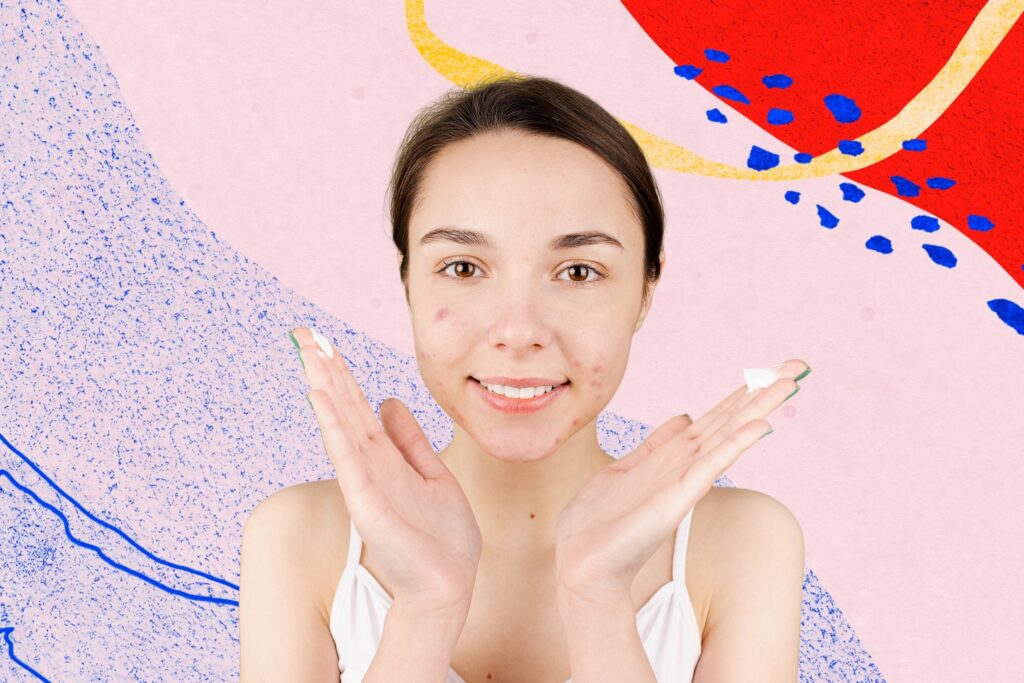Acne is a common skin condition where oil, dirt, and bacteria block the skin’s pores, leading to white and black heads. But we didn’t need to tell you that right? As anyone who lived through their teenage years looking in the mirror can attest, acne can cause self-consciousness at best and scarring at worst.
As a teenager, most people had a few spots or may have had acne. Plus, as is the way, you may have received advice relating to treating those stubborn spots with everything from witch hazel to drinking copious amounts of water. Perhaps you even remember the toothpaste ‘trick’ from school. We certainly do.
Thus, the confusion begins on how best to treat acne, usually exacerbated by an upcoming social occasion, first date, or other situation where you’d love your complexion to look its clearest. Sometimes, it can be hard to separate fact from fiction, potentially causing people to treat their breakouts with unreliable methods, which can make them worse.
If you want to separate the facts from the fiction relating to acne, read on as we debunk 5 popular myths about acne.
Acne Is Solely A Teenage Concern
Most of those who suffer from acne are indeed teenagers, as all of those who suffered during their school days will confirm. However, it is far from being a teenage-only issue.
Indeed, adult acne (or post-adolescent acne), can occur beyond your teenage years, though its prevalence does slow as we age.
Rather than accepting the issue, what is more important is determining the cause of the acne, which may result in your needing to take medications to reduce the inflammation or using differin gel for blackheads if they are part of your clinical presentation.

Acne Is Caused By Bad Hygiene
The chief causes of acne are inflammation, excess oil production, pores becoming clogged by ‘sticky’ skin cells, and bacteria. Acne is not, the majority of times, caused by bad hygiene. This is the biggest myth relating to acne and is one that causes a lot of shame among those who suffer from it.
There is some truth behind the fact that when you have acne, you need to up – or, rather, adjust – your skincare regime to keep it controlled, but it is never the main cause of the condition.
Acne has been found to have genetic components, and interestingly, washing and scrubbing your skin when you have acne can worsen the inflammation and cause the spots and irritation to spread. It’s sensible, then, to always consult with a dermatologist about the potential causes of your acne to then identify the most suitable, targeted treatment.
Exfoliating Your Skin Will Get Rid Of Acne
As mentioned earlier, using abrasive scrubs on acne can cause your spots to become more irritated and inflamed, causing them to sometimes spread to other parts of your face. You may want to refrain from exfoliating or rough scrubbing until the cause has been determined.
Exfoliation can also dry out your skin, making it more prone to pimples and redness. When washing your face when you have acne, aim to do so twice a day with lukewarm water and pat it dry.
Sometimes, natural remedies might be a safer bet, whether that’s tea tree oil, aloe vera or echinacea. Check out our guide to natural remedies for acne here.
You Should Pop Acne Spots
No. Big no. Never pop acne spots, even if they are driving you up the wall, as doing so increases the chance of scarring when the spots heal, as well as making the bacteria in the spot spread to the nearby pores. If you have concerns about acne scarring, talk to your doctor or dermatologist about ways to prevent or treat it.
UV Light Can Reduce Acne Spots
Much like the exfoliation, in theory alone, this should work to reduce the appearance of spots, but it rarely has that effect. Indeed, tanning beds, sunbathing, and UV lamps dry out the skin and increase the chance of skin scarring. Best, then, to apply sunscreen on those high UV days.
As we move into winter and that sunbathing we mentioned becomes but a distance memory, you might want to consider changing up your skincare routine to suit the season. We can’t wait to see you glow!





